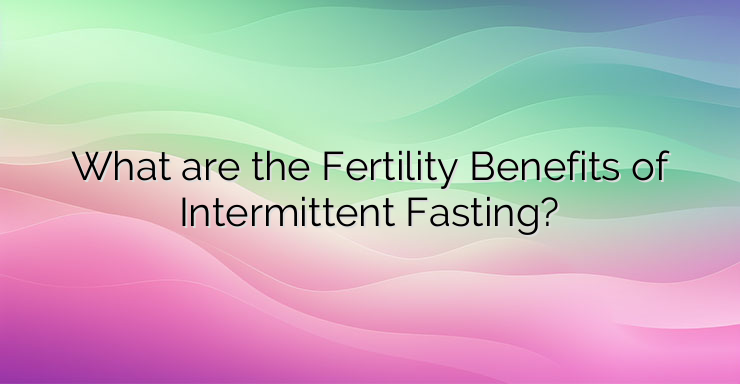Intermittent fasting has long been shown to be an effective way to control and reduce body weight, but the effect of this method on female fertility has not been established. A study conducted by the University of Illinois, Chicago, has shown that intermittent fasting is involved in controlling the levels of certain fertility-related hormones. Obesity is also a factor that significantly impairs fertility, which is why it is important to assess the positive impact of intermittent fasting on both weight and the ability to conceive. How does intermittent fasting affect hormonal balance? For the purposes of the study, a group of obese women – some of them premenopausal – under the age of 40, and others postmenopausal – were followed. Both groups followed an intermittent fasting regimen for a period of 8 weeks. The consumption of the daily caloric intake took place within 4-6 hours during the day and during the rest of the time, until the next day, the participants did not consume anything. Blood tests have been used to measure the levels of fertility-related hormones. The results were compared with those of another group of women who did not observe such a regimen with intermittent fasting. Analysis of the results showed the following changes: Levels of sex hormone-binding globulin, a protein that transports reproductive hormones in the body, were not changed after intermittent fasting. Levels of testosterone and androstenedione, a steroid hormone the body uses to make testosterone and estrogen, were also unchanged after intermittent fasting. Levels of dehydroepiandrosterone, or DHEA, a hormone important for improving ovarian function and egg quality, were reduced by 14% after intermittent fasting in both premenopausal and postmenopausal women. Although DHEA levels had not dropped, they remained within the normal range. Is intermittent fasting appropriate when trying to conceive? In obese patients, excess weight may reduce fertility to a greater extent than intermittent fasting. Therefore, it is important to weigh the risks of a modest drop in DHEA levels, such as intermittent fasting, against the beneficial effects of intermittent fasting on body weight. Intermittent Fasting After Menopause In postmenopausal women, the drop in DHEA levels can be significant because menopause causes a drop in estrogen, and DHEA is a major component of estrogen. However, the study did not show whether postmenopausal women who fasted intermittently experienced more side effects of low estrogen levels during menopause, such as vaginal dryness or sexual dysfunction. What is the effect on breast cancer risk? High levels of DHEA are associated with an increased risk of breast cancer. This is why a moderate drop in DHEA levels,that is due to intermittent fasting may be important in reducing this risk in both premenopausal and postmenopausal women. What is Intermittent Fasting Weight Loss? The women who followed the intermittent fasting regimen had a 3% to 4% weight loss compared to their starting weight after 8 weeks, while the control group had no weight loss. Also, women who did intermittent fasting had a decrease in insulin resistance and biomarkers of oxidative stress. References: https://www.sabervivirtv.com/embarazo-y-parto/ayuno-intermitente-afecta-fertilidad_7713 https://onlinelibrary.wiley.com/doi/10.1002/oby.23562


Leave a Reply